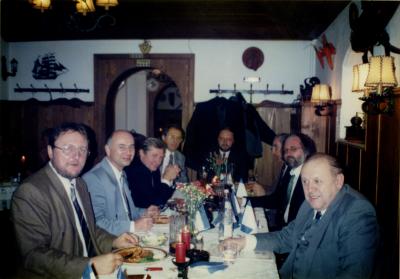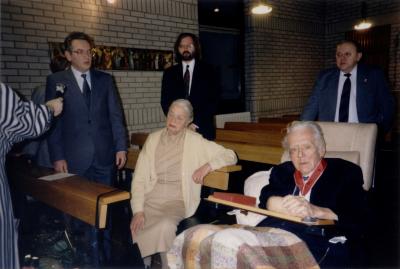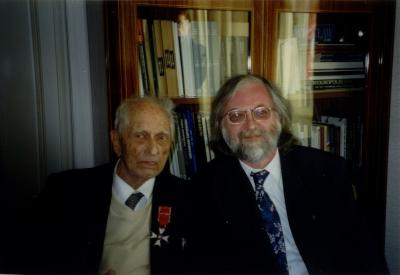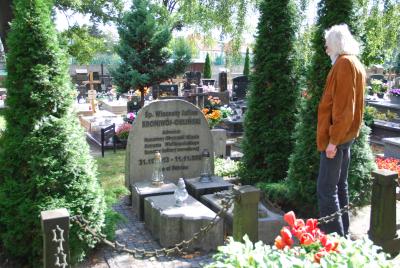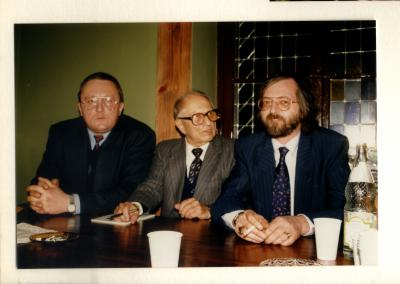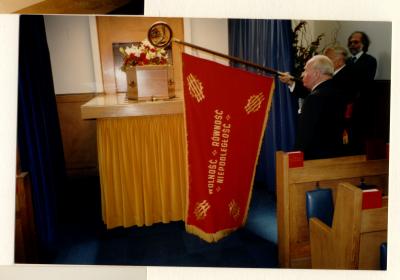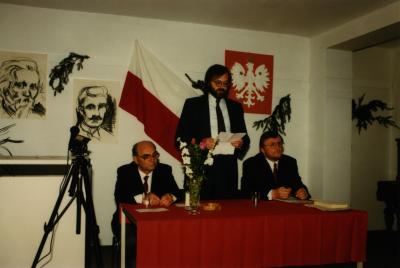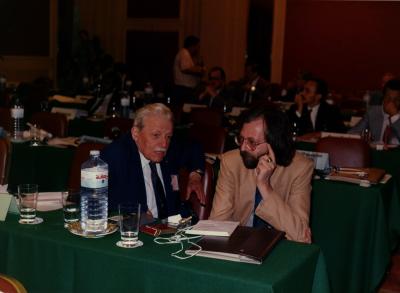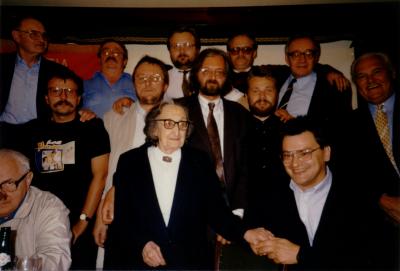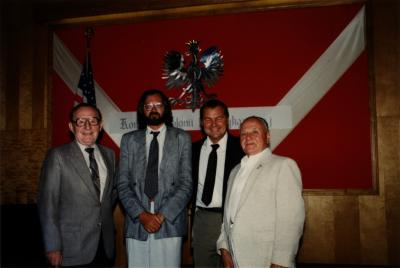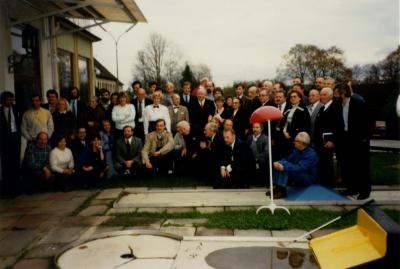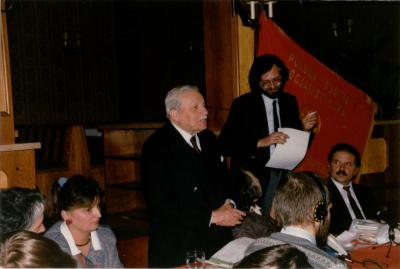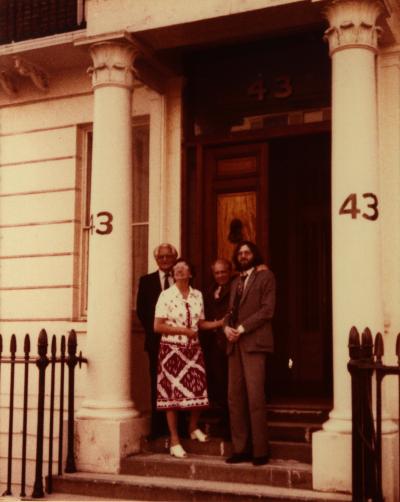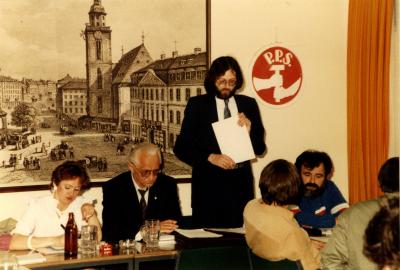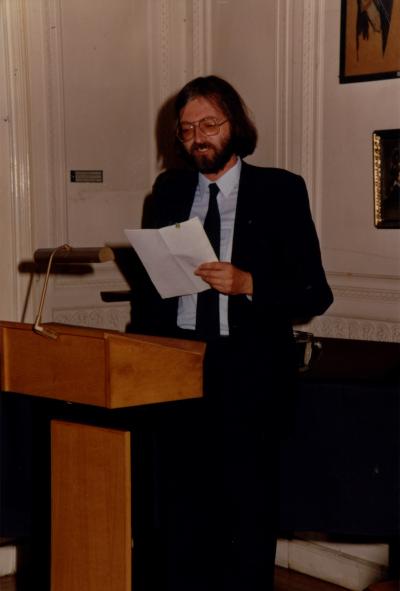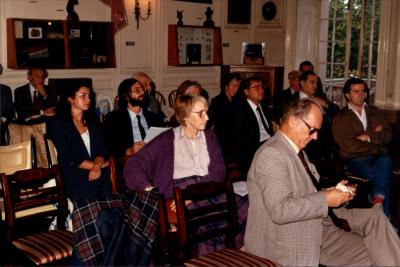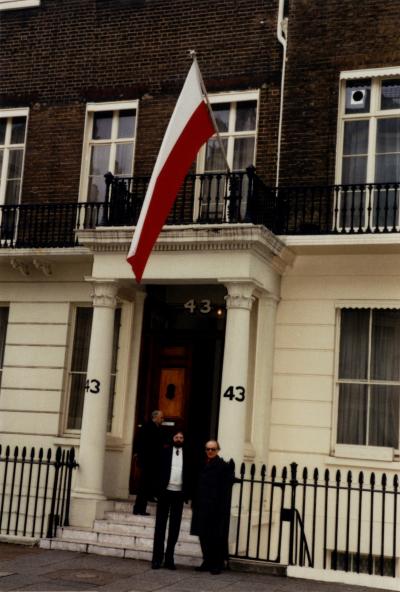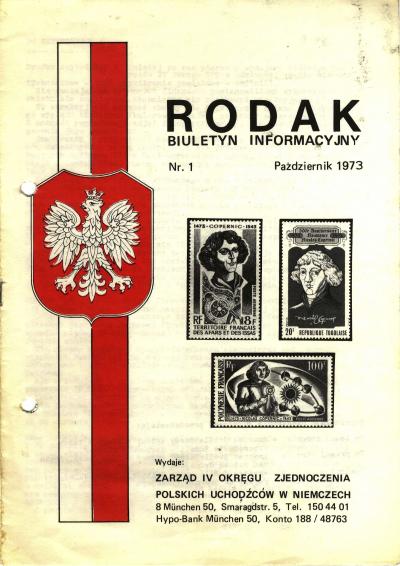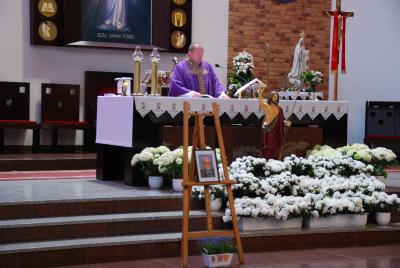Dedicated to Poland: Jacek Kowalski (1950–2019)

Aside from his social and political activities, Jacek Kowalski began working as a journalist, contributing articles to the “Dziennik Polski” and “Tygodnik Polski” magazines. In 1978, during a stay in London, he was elected as a member of the General Council of the Polish Socialist Party and met Lidia and Adam Ciołkosz. As a result of his social and political activities, he also forged closer ties with the PPS and Radio Free Europe. His friendship with Tadeusz Podgórski led to various joint initiatives, including the further development of the PPS structures in the Federal Republic of Germany. After a while, he became editor-in-chief of “Przemiany” magazine (1974–1987) and its German equivalent, “Die Wende” (1980–1983). Together with Eugeniusz Pietraszewski, he published “Rodak”, a magazine for the 4th district of the Association of Polish Refugees. It was published in Munich and covered the whole of Bavaria. In 1979, he was elected as a member of the German branch of the National Council of Poland. After the imposition of martial law, he smuggled banned literature into the People’s Republic of Poland and other eastern bloc countries. In 1981, the 9th division of the 1st department of the Ministry of the Interior of the People’s Republic of Poland (civilian intelligence service) became aware of his activities. In 1983, the district Bureau for Internal Affairs in Będzin became interested in him, as did the 2nd division of the voivodeship Bureau for Internal Affairs in Olsztyn in 1985 (counterintelligence). Officials from the voivodeship Bureau for Internal Affairs came to his apartment in Poznań and attempted to discredit him. At the same time, his closest family members who were living in Poland were tailed. It was not until 1990 that the security services lost interest in him. Kowalski discussed these activities in our interview:
“What kind of smuggling network was it? We were around a dozen individuals who regularly came to Germany. I even knew one of the men. His name was Makusz-Woronicz. (...) Before the war, he worked for the 2nd division of the general staff of the Polish Army. Later, he arrived in Germany and then London in a small Polish Fiat 126p. (...) He therefore had connections on the German-Czech border. He just had to wait for the right people to be there in order to pass through. (...) The Czechs didn’t make control checks; only the Poles did so. And then he sent reports. His codename was ‘Niedźwiedź’ (‘Bear’). It was [the same] codename that he used in the general staff. ‘Niedźwiedź’ sent messages... what was it that he said?... ‘The eagle has landed safely’. (...) and then you had to make a note in the report (...) how many books had been sent and who had received them: students, research staff”.
In January 1983, he joined “Zurich”, the Swiss insurance company, as a general representative. During the same year, he became chairman of the main committee of the Polish Socialist Party in the Federal Republic of Germany, secretary of the branch of the National Council and chairman of the PPS faction in the branch of the National Council. Throughout this period, he remained in contact with the leadership of the PPS in London. In 1986, he became deputy chairman of the branch of the National Council in West Germany. From 1987 onwards, together with the editor Bogdan Żurek, he began to bring together the Polish Socialist parties outside Poland. This culminated in the party congress in Bernried near Munich. From 1987 onwards, he was chairman of the Central Executive Committee and member of the General Council of the PPS in London. During the 1980s, he was chairman of the Polish Refugee Council for the Polish government-in-exile in London. In this role, he was involved in granting political asylum to Polish refugees in West Germany and Austria. He was also in contact with the Polish American Immigration and Relief Committee. In 1990, he attended the 25th congress of the Polish Socialist Party, at which he was again elected as a member of the Central Executive Committee and the party’s General Council. Following the breakdown in negotiations with the socialists of the PPS in Poland, he organised the Central Foreign Committee of the PPS, which remains active to this day. In 1993, he became chairman of this Committee. In this role, he participated in several congresses of the Socialist International, which had previously been headed by Willy Brandt. In 1992, together with foreign minister Krzysztof Skubiszewski, he attended the memorial service for Willy Brandt in the Reichstag. As Jan Kowalski recalled:
“(...) I was present at this state ceremony in the Reichstag, where we bid goodbye to Brandt before he was laid to rest in the cemetery in Berlin. At the ceremony, I represented the Polish Socialist Party, while Poland was represented by Minister Skubiszewski. After the ceremony, I had the opportunity to speak with the minister”.










